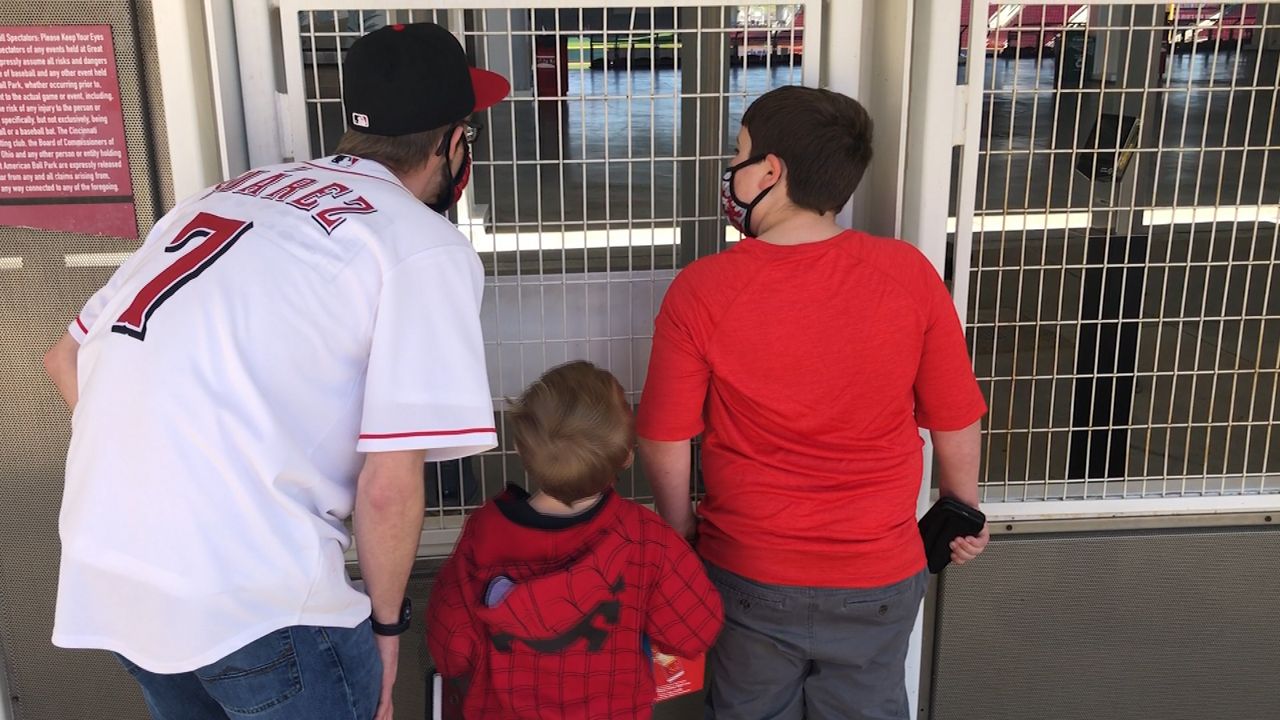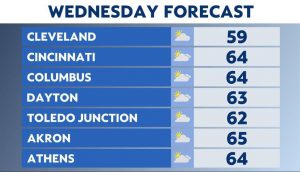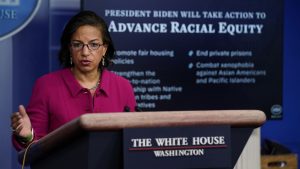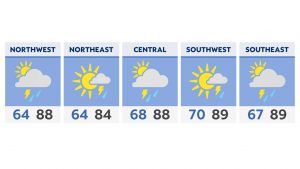MINNEAPOLIS (AP) — The convenience store cashier who was handed a counterfeit $20 bill by George Floyd — setting in motion the Black man’s ill-fated encounter with police — testified Wednesday that he watched Floyd’s arrest outside with “disbelief — and guilt.”
What You Need To Know
- Christopher Martin, the convenience store cashier who sold cigarettes to George Floyd and was handed a counterfeit $20 bill, testified Wednesday at Derek Chauvin’s murder trial
- Prosecutors also played store security video showing Floyd in Cup Foods for about 10 minutes last May
- Martin said Floyd appeared to be high inside the store and that his manager sent him outside to ask Floyd to return to the store after he paid with a counterfeit bill
- Martin was later arrested outside, where Chauvin pinned his knee on Floyd’s neck for what prosecutors said was 9 minutes, 29 seconds
“If I would’ve just not tooken the bill, this could’ve been avoided,” 19-year-old Christopher Martin lamented at Officer Derek Chauvin’s murder trial, joining the burgeoning list of onlookers who expressed a sense of helplessness and lingering guilt over Floyd’s slow death last May.
Prosecutors used Martin and other witnesses to help lay out the rapidly escalating sequence of events that ended in tragedy. They also played store security video of Floyd inside Cup Foods and yet another piece of amateur footage of him outside, adding to the mountain of video documenting what happened.
Together, the witness accounts and video began to show how events spun out of control, as a scene of people apparently joking around inside the neighborhood market soon gave way to the sight of officers removing Floyd from his SUV at gunpoint.
Martin said he immediately believed the $20 that Floyd gave him in exchange for a pack of cigarettes was fake. But he accepted it, despite a store policy that said the amount would be taken out of his paycheck, because he didn’t believe Floyd knew it was counterfeit and “I thought I’d be doing him a favor.”
Martin said he initially planned to just put the bill on his own “tab” but then second-guessed himself and told a manager, who sent Martin outside to ask Floyd to return to the store. But Floyd and a passenger in his SUV twice refused to go back into the store to resolve the issue, and the manager had a co-worker call police, Martin testified.
Floyd was later arrested outside, where Chauvin pinned his knee on the man’s neck for what prosecutors said was 9 minutes, 29 seconds, as a handcuffed Floyd lay face-down on the pavement. Floyd, 46, was later pronounced dead at a hospital.
Chauvin, 45, is charged with murder and manslaughter. The most serious charge against the now-fired white officer carries up to 40 years in prison.
Floyd’s death, along with the harrowing bystander video of him gasping for breath as onlookers yelled at Chauvin to get off him, triggered sometimes violent protests around the world and a reckoning over racism and police brutality across the U.S.
Martin said that inside the store, he asked Floyd if he played baseball, and Floyd said he played football, but it took Floyd some time to respond, so “it would appear that he was high.” But he described Floyd as friendly and talkative.
The defense has argued that Chauvin did what he was trained to do and that Floyd’s death was not caused by Chauvin’s knee on his neck, as prosecutors contend, but by a combination of illegal drug use, heart disease, high blood pressure and the adrenaline flowing through his body.
After police arrived that day, Martin went outside as people were gathering on the curb and yelling at officers, then called his mother, with whom he lived in an apartment upstairs, and told her to stay inside. He then took out his phone and began recording.
He said he saw Officer Tou Thao push one of his co-workers. Martin said he also held back another man who was trying to defend himself after being pushed by Thao.
Martin later deleted his recording, explaining that the ambulance didn’t take the fastest route to the hospital so he thought Floyd died.
“I just didn’t want to have to show it (the video) to anyone,” he said.
Another witness, who parked behind the SUV Floyd was driving, said he saw two officers approach Floyd’s vehicle as one drew a gun, opened the driver’s door and pointed the weapon at Floyd.
Christopher Belfrey, 45, said he was “startled,” so began taking video through his windshield. Prosecutors played some of that video, which showed officers taking Floyd out of the car, and video that Belfrey took later from across the street that showed Floyd seated against the wall of a restaurant across from Cup Foods.
On Tuesday, a parade of witnesses testified that they and other bystanders in a group of about 15 people on the sidewalk became upset as they repeatedly begged Chauvin to take his knee off Floyd’s neck. But Chauvin refused to ease up, and Thao kept back those who tried to intervene, including a Minneapolis firefighter with EMT training.
The testimony from the prosecution witnesses was apparently aimed at showing that Chauvin had multiple opportunities to think about what he was doing and change course.
To the prosecution, the witnesses who watched George Floyd’s body go still were regular people — a firefighter, a mixed martial arts fighter, a high school student and her 9-year-old cousin in a T-shirt emblazoned with the word “Love” — going about their daily lives when they happened upon the ghastly scene of an officer kneeling on a man’s neck.
“Normal folks, the bystanders,” prosecutor Jerry Blackwell called them in his opening statement. “You’re going to see these bystanders, a veritable bouquet of humanity.”
But Chauvin attorney Eric Nelson also repeatedly sought to bring out evidence that the onlookers were becoming agitated, in an apparent attempt to show that the police were distracted by what they perceived as a growing and increasingly hostile crowd.
Nelson has told the jury about the hostility the officers faced, how they were distracted and perhaps frightened by people at the scene — repeatedly describing the bystanders as a “crowd,” and calling the neighborhood a “high crime area.”
The carefully calibrated language by each side is no accident. As Nelson cross-examined Donald Williams, a former wrestler and a mixed martial arts fighter who has also worked security, he peppered his questions with the word “crowd”: “Have you ever had to deal with a crowd of people?” “Have you ever had to deal with a crowd of people that was upset?” and “Is it easier or harder to deal with a crowd that is upset?”
At the time, Chauvin defended himself to a bystander by saying Floyd was “a sizable guy” and “probably on something,” according to police video played in court Wednesday.
The security-camera scene of people joking around inside the store soon gave way to the sight of officers pulling Floyd from his SUV at gunpoint, struggling to push him into a squad car as he writhed and complained of being claustrophobic, and then putting him on the pavement.
When Floyd was finally taken away by paramedics, Charles McMillian, a 61-year-old bystander who recognized Chauvin from the neighborhood, told the officer he didn’t respect what Chauvin had done.
“That’s one person’s opinion,” Chauvin could be heard responding. “We gotta control this guy ’cause he’s a sizable guy … and it looks like he’s probably on something.”
Floyd was 6-foot-4 and 223 pounds, according to the autopsy, which also found fentanyl and methamphetamine in his system. Chauvin’s lawyer said the officer is 5-foot-9 and 140 pounds.
As Floyd was pinned down by Chauvin and other officers, McMillian, the bystander, could be heard on video saying to Floyd, “You can’t win” and “Get up and get in the car.”
Floyd replied: “I can’t.”
Wednesday morning’s testimony was briefly interrupted when a juror stood and raised her hand and gestured toward the door. She later told the judge that she had been feeling stress and having trouble sleeping, but told the judge she was OK to proceed.




